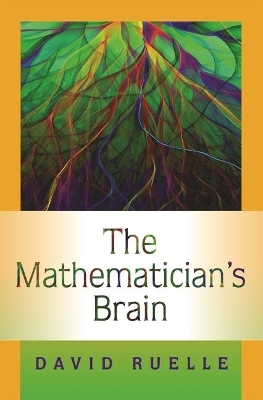
The Mathematician's Brain
Princeton University Press (Verlag)
978-0-691-12982-2 (ISBN)
The Mathematician's Brain poses a provocative question about the world's most brilliant yet eccentric mathematical minds: were they brilliant because of their eccentricities or in spite of them? In this thought-provoking and entertaining book, David Ruelle, the well-known mathematical physicist who helped create chaos theory, gives us a rare insider's account of the celebrated mathematicians he has known-their quirks, oddities, personal tragedies, bad behavior, descents into madness, tragic ends, and the sublime, inexpressible beauty of their most breathtaking mathematical discoveries. Consider the case of British mathematician Alan Turing. Credited with cracking the German Enigma code during World War II and conceiving of the modern computer, he was convicted of "gross indecency" for a homosexual affair and died in 1954 after eating a cyanide-laced apple--his death was ruled a suicide, though rumors of assassination still linger. Ruelle holds nothing back in his revealing and deeply personal reflections on Turing and other fellow mathematicians, including Alexander Grothendieck, Rene Thom, Bernhard Riemann, and Felix Klein. But this book is more than a mathematical tell-all.
Each chapter examines an important mathematical idea and the visionary minds behind it. Ruelle meaningfully explores the philosophical issues raised by each, offering insights into the truly unique and creative ways mathematicians think and showing how the mathematical setting is most favorable for asking philosophical questions about meaning, beauty, and the nature of reality. The Mathematician's Brain takes you inside the world--and heads--of mathematicians. It's a journey you won't soon forget.
David Ruelle is professor emeritus of mathematical physics at the Institut des Hautes Etudes Scientifiques in France and distinguished visiting professor of mathematics at Rutgers University. His books include "Chance and Chaos" (Princeton).
Preface vii Chapter 1: Scientific Thinking 1 Chapter 2: What Is Mathematics? 5 Chapter 3: The Erlangen Program 11 Chapter 4: Mathematics and Ideologies 17 Chapter 5: The Unity of Mathematics 23 Chapter 6: A Glimpse into Algebraic Geometry and Arithmetic 29 Chapter 7: A Trip to Nancy with Alexander Grothendieck 34 Chapter 8: Structures 41 Chapter 9: The Computer and the Brain 46 Chapter 10: Mathematical Texts 52 Chapter 11: Honors 57 Chapter 12: Infinity: The Smoke Screen of the Gods 63 Chapter 13: Foundations 68 Chapter 14: Structures and Concept Creation 73 Chapter 15: Turing's Apple 78 Chapter 16: Mathematical Invention: Psychology and Aesthetics 85 Chapter 17: The Circle Theorem and an Infinite-Dimensional Labyrinth 91 Chapter 18: Mistake! 97 Chapter 19: The Smile of Mona Lisa 103 Chapter 20: Tinkering and the Construction of Mathematical Theories 108 Chapter 21: The Strategy of Mathematical Invention 113 Chapter 22: Mathematical Physics and Emergent Behavior 119 Chapter 23: The Beauty of Mathematics 127 Notes 131 Index 157
| Erscheint lt. Verlag | 5.8.2007 |
|---|---|
| Zusatzinfo | 18 line illus. |
| Verlagsort | New Jersey |
| Sprache | englisch |
| Maße | 152 x 235 mm |
| Gewicht | 397 g |
| Themenwelt | Mathematik / Informatik ► Mathematik ► Geschichte der Mathematik |
| ISBN-10 | 0-691-12982-7 / 0691129827 |
| ISBN-13 | 978-0-691-12982-2 / 9780691129822 |
| Zustand | Neuware |
| Haben Sie eine Frage zum Produkt? |
aus dem Bereich


